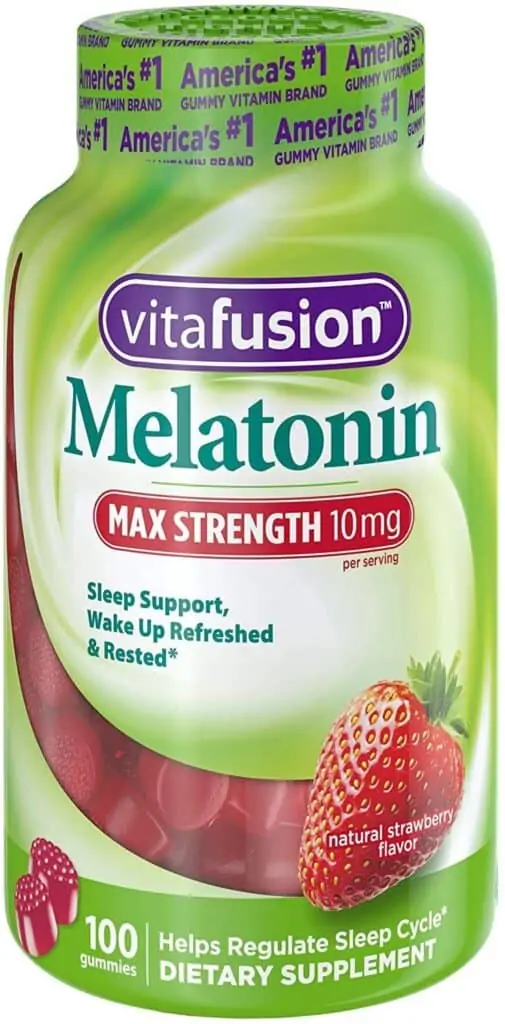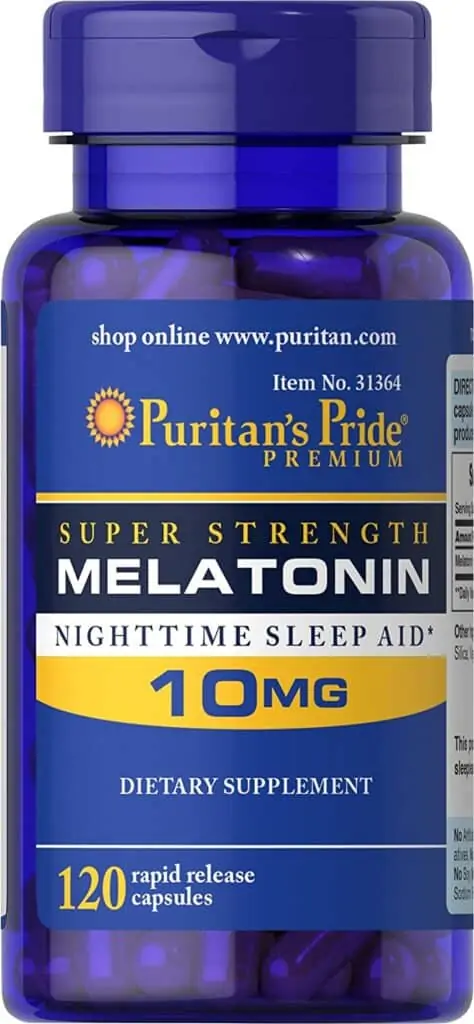Melatonin is a hormone primarily released by the pineal gland at night and has long been associated with controlling the sleep-wake cycle. As a dietary supplement, Melatonin Gummies are often used for the short-term treatment of insomnia, such as from jet lag or shift work, and are typically taken orally. Evidence of its benefit for this use, however, is not strong. A 2017 review found that sleep onset occurred six minutes faster with use but found no change in total time asleep.
Is Melatonin natural?
The pineal gland in the brain produces and releases Melatonin into circulation. It produces Melatonin in the dark and stops generating it in the light. It’s also present in chocolate, bananas, and tomatoes.
What is Melatonin made of?
Animals’ pineal glands produce natural Melatonin that may be virus-infected and should not be used. Synthetic Melatonin does not pose this danger. The companies should mention the kind of Melatonin on the pill bottle.
Related Readings
New Black Water & 9 Alkaline Drinks: Liked by Fittest Celebs,
Collagen vs Protein Powder: 9 Best Collagen Powders,
8 Best Meal Replacement Shakes: Need a Quick Weight Reduction?
Do Melatonin Gummies work?
Melatonin gummies for sleep aren’t a permanent remedy. While short-term usage of sleep gummies may help individuals with short jet lag, delayed sleep-wake problems, and certain shift workers, long-term use is unproven. They help you wake up feeling refreshed. Melatonin supplements can be used to treat insomnia. Kid’s melatonin gummies are also safe supplements within the dosage.
Melatonin is an essential hormone that helps regulate sleep cycles. It also has many other health benefits, such as helping reduce stress, improving mood, and boosting immunity.
Melatonin may be an antioxidant and anti-inflammatory. The advantages of melatonin for treating cancer are also intriguing, but research is still in its infancy.
Taking melatonin orally can be tricky because it isn’t always absorbed properly. Only around 20% of the dose reaches the bloodstream.
That’s where gummies come in. They dissolve quickly in the mouth and release melatonin into the body.
Is Melatonin addictive?
It is not addictive, nor do you get a hangover. Unlike other sleep aids, Melatonin does not induce withdrawal symptoms. That is, it does not lead you to require more and more over time as addiction does.
Why is Melatonin prohibited in the UK?
In the UK, the Medicines Control Agency determined that Melatonin was “medicinal by function” and required a drug license. The MCA has written to all relevant vendors to cease supplying the goods.
In many countries, melatonin supplements need a prescription. A notice that the FDA does not support any claims made about melatonin is required in the US. Third-party certification from organisations like the US Pharmacopeia or the National Sanitation Foundation (NSF) may offer some confidence regarding the component list’s veracity. (www.usp.org)
Are Melatonin Gummies Healthy?
Short-term melatonin usage is usually harmless, but long-term consequences are unknown. Melatonin has few adverse effects. Melatonin side effects include headache, dizziness, nausea and drowsiness. If you get any of these stop taking it and talk to your doctor.
Disadvantages of Melatonin
- It may not work as well as prescription drugs.
- It may cause drowsiness in some people.
- Do not work for everyone
Best Selling Melatonin Gummies
Vitafusion Max Strength
- Melatonin Gummies 10mg
- Vitafusion melatonin gummies regulate sleep cycles
- Combats jet lag
- Strawberry taste
- This product contains no artificial flavours, high fructose corn syrup, gluten, milk or colours.
Natrol Melatonin Fast Dissolve Tablets
- Melatonin Gummies 5mg
- Natrol melatonin gummies treat occasional insomnia.
- You can use it to change your internal clock, and it’s also vegan.
- It has a unique fast dissolve strawberry composition.
Zarbee’s Naturals Children’s Sleep
- Melatonin Gummies 1mg
- Natural berry chewable gummy to help your kid sleep.
- Recommended for children ages 3 and up. Berry flavour from natural fruit extracts.
- Contains non-habit-forming chemicals.
OLLY Sleep Melatonin Gummy
- Melatonin gummies 3mg
- With L-Theanine and botanicals to help relax and experience peaceful sleep
- L-Theanine promotes tranquillity, while Chamomile, Passionflower, and Lemon Balm soothe and relax.
- 2 gummies 30 minutes before bedtime
- Adult gummies are naturally flavoured with blackberry & mint. Are gluten-free.
Puritan’s Pride Super Strength
- Melatonin Gummies 10mg
- Sleep assistance
- Fall asleep and stay asleep right away.
- No artificial flavour, colour. No preservatives, no sugar, no starch.
ZzzQuil PURE Zzzs, Triple Action
- Melatonin Gummies 6mg
- Mind & body calming.
- Ashwagandha, Chamomile, Lemon Balm, Valerian Root, and Lavender.
- Help you fall asleep while travelling across time zones.
Relaxium Natural Sleep Aid
- Melatonin Gummies 5mg
- Follows FDA-approved Good Manufacturing Practices.
- Contains melatonin, magnesium, passionflower, GABA, Sensoril, and chamomile.
- 100% money-back guarantee.
How Much Melatonin?
Melatonin gummies for kids are getting popular by the day. Short-term usage of low dosages of melatonin seems safe and well-tolerated by most kids. Children need between 0.05 mg/kg to 5 mg of melatonin. Side effects of melatonin in children are usually minor and include agitation, bedwetting, dizziness, drowsiness and headaches.
Children with sleep disorders including sleeplessness, autistic spectrum disorder, or ADHD may benefit from melatonin. According to many studies, pupils with these problems may benefit from melatonin tablets that increase sleep duration by 25 to 48 minutes.
The dosage for melatonin gummies for Adults should be 0.5 to 5mg each day an hour before bedtime. Notify your doctor if you’re pregnant or nursing. The safety of melatonin in this group has not been well studied.
As we age, our melatonin levels gradually decline, interrupting sleep-wake patterns for many. Experts advise older people to start with the lowest dosage of melatonin. It may help elderly people sleep without altering their circadian cycles or creating excessive sleepiness.
The American Academy of Sleep Medicine advises against melatonin use in dementia patients.
1, 3, 5 or 10mg of melatonin are available over the counter. To produce a lower beginning dosage, split the pills in half or less.
Take melatonin an hour before bedtime. The brain boosts melatonin synthesis one to two hours before sleep, so taking it at this time may assist.
Melatonin may help individuals who travel across several time zones. Adults may take 0.5 to 5 mg one hour before bed for up to four nights following arrival.
Melatonin is not recommended with alcohol or coffee. Alcohol may interfere with sleep and natural melatonin levels. As a stimulant, caffeine interrupts sleep-wake cycles and may reduce melatonin synthesis.











